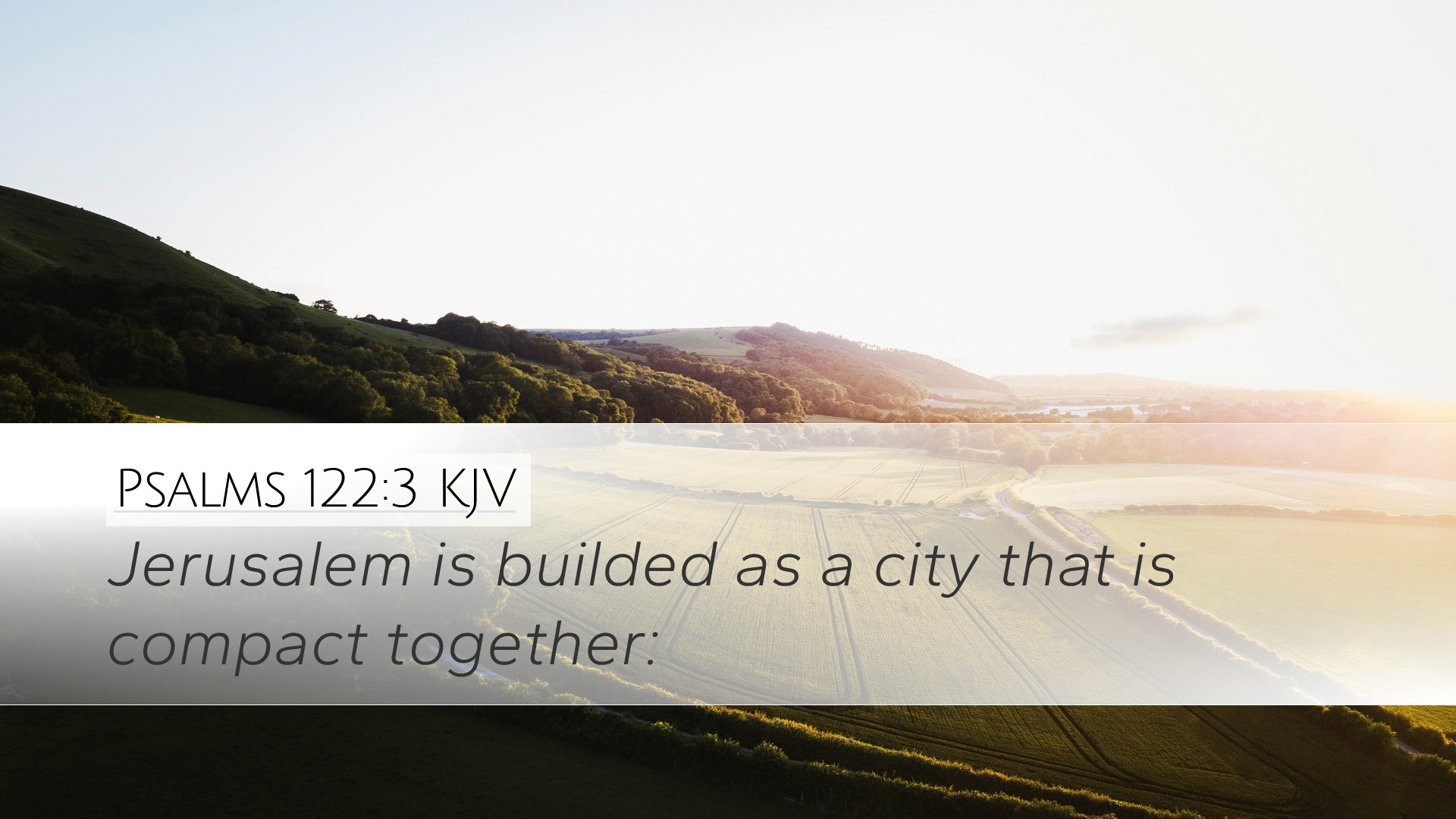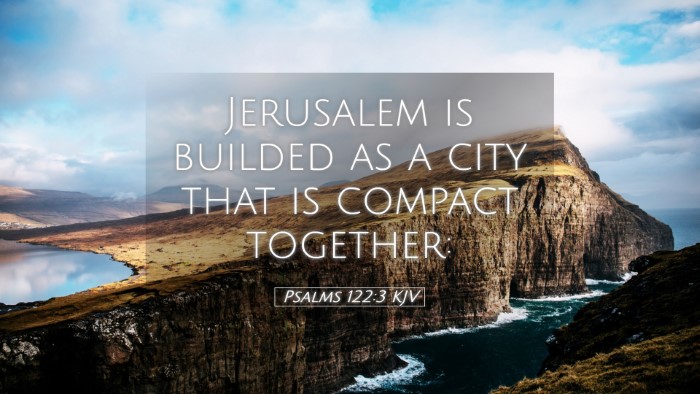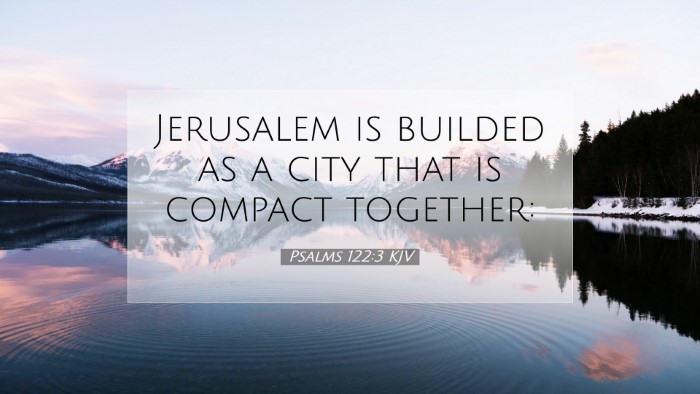Psalms 122:3 Commentary
Bible Verse: "Jerusalem is built as a city that is compact together."
Introduction
The verse from Psalm 122:3 serves as a foundational expression of the psalmist's view of Jerusalem, symbolizing not only a geographical location but also a spiritual center for the people of Israel. It reflects the unity and strength embodied in the structure and purpose of the city, inviting deeper exploration into its theological and practical implications.
Historical Context
The psalm is attributed to David, a man whose life and reign were inextricably linked to the city of Jerusalem. His establishment of Jerusalem as the capital of Israel marked a significant turning point in biblical history, representing a unified nation under God’s covenant. The psalm is part of the Songs of Ascents, suggesting its use by pilgrims traveling to the holy city for worship festivals.
Theological Insights
This verse can be dissected into several key theological insights:
- Unity of the Church: Just as Jerusalem is depicted as a unified city, the Church is called to be one body in Christ (1 Corinthians 12:12-27). The city’s structure symbolizes how disparate individuals, when unified under Christ, can form a cohesive community for worship and fellowship.
- The Presence of God: Jerusalem is also emblematic of God’s dwelling place among His people. A compact city suggests a closeness that fosters divine presence, reminiscent of how Christ promises to be in the midst of two or three gathered in His name (Matthew 18:20).
- Fulfillment of Prophecy: The depiction of Jerusalem connects to numerous prophetic writings that foresee the culmination of God's redemptive work in His people, highlighting the enduring significance of the city in eschatological terms (Isaiah 2:2).
Commentary from Public Domain Resources
Matthew Henry
Matthew Henry emphasizes the physical and spiritual dimensions of Jerusalem. He notes that Jerusalem is not merely to be regarded as an earthly city but as a symbol of the heavenly Jerusalem. Henry discusses the compactness of the city as indicative of peace and harmony among its inhabitants, suggesting that this unity reflects the tranquility found in God’s presence. Such compactness, he argues, should be a model for believers to seek unity in the church.
Albert Barnes
Albert Barnes sees the phrase "built as a city that is compact together" as an affirmation of the city’s fortification and strength. He examines the historical developments of Jerusalem’s architecture, noting how its structure was designed for security and community. In his view, this compactness serves as a metaphor for the Church, urging believers to come together in strength and purpose, resisting division and fostering collaboration in the mission of spreading the Gospel.
Adam Clarke
Adam Clarke expounds on the significance of Jerusalem as a center of worship, asserting that the city’s very design was divinely ordained. He interprets the term “compact” as reflecting not only physical closeness of buildings but also a spiritual unity among the people. Clarke encourages readers to find parallels in their lives, noting that God desires His people to be unified in faith and purpose, much like Jerusalem was intended to be a beacon of hope and worship for all nations.
Practical Applications
For pastors, students, and scholars, Psalms 122:3 invites several practical applications:
- Encouraging Fellowship: Understanding Jerusalem’s unity can inspire church leaders to cultivate environments that foster community and genuine fellowship within their congregations.
- Promoting Peace: The compactness of Jerusalem ought to challenge believers to be peacemakers in a divided world, reflecting the virtues of reconciliation and unity that are central to the Christian faith.
- Worship as Central Focus: By maintaining worship as the focal point of community life, churches mirror the purpose of Jerusalem, becoming gathering places where God's presence is sought and celebrated.
Conclusion
Psalms 122:3 is much more than a statement about a city; it reflects deep spiritual truths that resonate with believers today. Through the lens of its historical significance and theological depth, this verse invites a renewed vision of unity, purpose, and the presence of God among His people. The reflections from public domain commentaries enrich our understanding and challenge us to embody the principles of compact unity both in church contexts and in individual lives.


